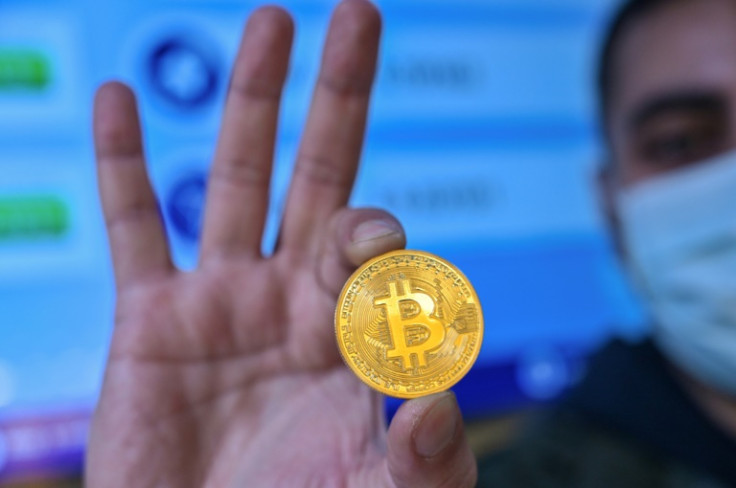
Bitcoin on Monday rose past $40,000 for the first time since May last year, boosted by hopes that the United States will soon allow broader trading of the world's biggest cryptocurrency.
The digital asset has skyrocketed this year, gaining nearly 150 percent, with expectations growing that US regulators will allow the creation of exchange-traded funds (ETFs).
These would track the price of bitcoin and allow the public to invest in the currency without directly purchasing it.
"This idea that institutional money in US capital markets is going to have a legitimate, compliant avenue... the expectations are extremely high that that's really going to take bitcoin to new levels," Lucy Guzmararian, founder of Token Bay Capital, told Bloomberg.
Bitcoin was trading above $40,700 at around 0400 GMT Monday.
The currency remains well below its record value of almost $69,000 in 2020, but the rally marks a recovery following the high-profile scandals and collapses that rocked the crypto industry.
FTX, the world's second-biggest crypto exchange, dramatically went under last year, and its boss Sam Bankman-Fried faces up to 110 years in prison for what prosecutors described as "one of the biggest financial frauds in American history".
And last month, Changpeng "CZ" Zhao stepped down as CEO of Binance -- the world's biggest crypto exchange -- after he and the company pleaded guilty to sweeping money laundering violations.
The US Securities and Exchange Commission is re-examining a bitcoin ETF application from asset manager Grayscale, as well as requests from other groups including BlackRock and ArkInvest.
Its first decision is expected to be on Ark Invest's application, by January 10 at the latest.
Bitcoin has also been boosted by hopes that the US Federal Reserve has wrapped up its hiking programme and may cut interest rates next year.
The asset's value has also been driven by the supply crunch expected next year because of an event called "halving".
Bitcoin is created -- or "mined" -- as a reward when powerful computers solve complex problems.
But the amount of bitcoin is limited and every four years, the reward is halved. The next "halving" is due in May 2024.




